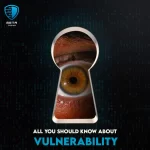As we forge ahead into 2024 linux enumeration tools have become an indispensable arsenal for ethical hackers, penetration testers, and security professionals. These powerful utilities enable us to uncover vulnerabilities, gather crucial information about target systems, and ultimately strengthen our defensive postures against potential threats.

What is Linux enumeration?
Linux enumeration is a process used to gather information about a computer system running on a Linux operating system. This information is valuable for understanding how the system is set up, what software is installed, and what users and resources are available. Enumeration helps in assessing the security of a Linux system and identifying potential vulnerabilities that could be exploited by attackers.
One aspect of Linux enumeration tools is gathering information about the system’s configuration. This includes details about the operating system version, kernel version, and hardware specifications. Knowing this information is essential for ensuring compatibility with software and hardware requirements and for troubleshooting issues.
Another important part of Linux enumeration is identifying installed software and services. This includes applications, utilities, and daemons running on the system. Understanding the software landscape helps in managing dependencies, updating software versions for security patches, and identifying potential security risks associated with outdated or vulnerable software.
learn more about Malicious Backdoor Spotted in Linux
Process of Linux enumeration
Identifying the Linux Distribution and Kernel
The initial step in the enumeration process involves determining the Linux distribution and kernel version running on the target system. This information provides valuable insights into potential vulnerabilities and guides the subsequent enumeration steps. Utilize the following commands:
cat /etc/issue,cat /etc/*-release,cat /etc/lsb-release,cat /etc/redhat-release: Display the distribution name and version.uname -a,uname -mrs,cat /proc/version: Reveal the kernel version and architecture (32-bit or 64-bit).rpm -q kernel,dmesg | grep Linux: Obtain kernel information on RPM-based distributions.
Enumerating Running Services and Users
Identifying the services running on the system and the associated user accounts is crucial for uncovering potential misconfigurations or vulnerabilities. Use the following commands:
ps aux,ps -elf,top: List all running processes, including the user accounts they are running under.ps aux | grep root,ps -elf | grep root: Filter processes running with root privileges, which may indicate potential privilege escalation opportunities.cat /etc/services: Examine the list of services and their associated port numbers.
Examining Network Configuration
Understanding the target system’s network configuration is essential for identifying potential attack vectors and communication channels. Employ the following commands:
ifconfig,ip link,ip addr,/sbin/ifconfig -a: List network interfaces and their configurations.cat /etc/network/interfaces,cat /etc/sysconfig/network: View network interface configuration files.cat /etc/resolv.conf: Obtain the configured DNS server addresses.iptables -L,cat /etc/sysconfig/iptables: Check firewall rules and configurations.
Why are Linux enumeration tools Important?
Linux enumeration tools play a role in identifying vulnerabilities, gathering information, and potentially escalating privileges on target systems. These tools are indispensable for penetration testers and security professionals tasked with assessing the robustness of Linux environments.
Unveiling Vulnerabilities
Linux enumeration tools are designed to uncover potential weaknesses and misconfigurations within a system. By systematically enumerating running services, user accounts, network configurations, and installed applications, these tools can reveal attack vectors that could be exploited by malicious actors. Identifying vulnerabilities is the first step toward fortifying defenses and mitigating risks.
Gathering Comprehensive Intelligence
Effective penetration testing relies on gathering comprehensive intelligence about the target system. Linux enumeration tools enable security professionals to collect detailed information about the operating system, kernel version, architecture, network settings, and running processes. This intelligence is invaluable for planning and executing targeted exploitation strategies.
Facilitating Privilege Escalation
In many scenarios, initial access to a system may be limited, requiring further escalation of privileges to gain administrative control. Linux enumeration tools assist in identifying potential privilege escalation opportunities, such as misconfigurations, vulnerable software versions, or exploitable services running with elevated permissions. This capability is crucial for conducting comprehensive security assessments and simulating real-world attack scenarios.
Best linux enumeration tools
Linux enumeration tools are crucial for understanding and securing Linux systems. They provide valuable insights into system configurations, installed software, user permissions, and network settings. Here are some of the best Linux enumeration tools widely used by cybersecurity professionals:
- Nmap: Nmap is a versatile network scanning tool used to discover hosts and services on a network. It operates by sending packets to target hosts and analyzing their responses to determine open ports, running services, and potential vulnerabilities. Nmap’s extensive range of scan types allows cybersecurity professionals to perform detailed reconnaissance, identify network assets, and assess security posture effectively. Its scripting engine and robust feature set make it a preferred choice for network mapping, vulnerability detection, and penetration testing tasks.
- LinEnum: LinEnum is a script written in bash (Bourne Again Shell) designed for local Linux enumeration. It automates the process of gathering system information, including OS details, user accounts, privilege escalation opportunities, installed software, cron jobs, file permissions, and more. LinEnum’s comprehensive analysis helps security analysts identify misconfigurations, insecure settings, and potential attack vectors that could be exploited by malicious actors. It simplifies the enumeration process on Linux systems, making it a valuable tool for security audits and vulnerability assessments.
- Lynis: Lynis is a powerful security auditing tool that evaluates the security posture of Linux and Unix-based systems. It performs extensive system hardening checks, configuration assessments, vulnerability scanning, and compliance checks against security standards such as CIS benchmarks. Lynis scans system components, including file systems, user accounts, network settings, software configurations, and log files, to identify potential risks and security weaknesses. It generates detailed reports with actionable recommendations to improve system security, mitigate vulnerabilities, and maintain regulatory compliance, making it an essential tool for system administrators and cybersecurity professionals.
- OpenVAS: OpenVAS (Open Vulnerability Assessment System) is a comprehensive vulnerability scanning and management tool designed for Linux and Unix systems. It scans target hosts and networks for known vulnerabilities in software packages, configurations, and network services. OpenVAS utilizes a database of vulnerability checks (NVTs) to identify security flaws, misconfigurations, and potential entry points for attackers. It provides detailed vulnerability reports, risk ratings, and remediation guidance to help organizations prioritize and address security issues effectively. OpenVAS’s customizable scanning options, centralized management, and integration capabilities make it an essential component of robust vulnerability management programs.
- Enum4linux: Enum4linux is a specialized enumeration tool focused on gathering information from Windows and Samba systems in Linux environments. It retrieves data related to user accounts, group memberships, shares, policies, and other network-related details from target systems. Enum4linux’s functionality includes the enumeration of SMB (Server Message Block) protocol features, NetBIOS information, LDAP (Lightweight Directory Access Protocol) data, and more. It assists security professionals in understanding network configurations, identifying potential security gaps, and assessing the risk posed by Windows/Samba systems in heterogeneous IT environments.
- Wireshark: Wireshark is a powerful network protocol analyzer used for capturing and analyzing network traffic in real time. It supports a wide range of protocols and network technologies, allowing security analysts to inspect packets, dissect communication streams, and identify anomalies or suspicious activities. Wireshark’s packet-level analysis capabilities help in troubleshooting network issues, detecting network intrusions, investigating security incidents, and monitoring network performance. Its user-friendly interface, customizable filters, and extensive protocol support make it an indispensable tool for network security professionals, system administrators, and cybersecurity researchers.
- Metasploit Framework: The Metasploit Framework is a renowned penetration testing tool that includes a vast array of exploits, payloads, auxiliary modules, and post-exploitation capabilities. While primarily known for its offensive security testing capabilities, Metasploit also offers valuable enumeration features. Security professionals can use Metasploit to identify vulnerabilities, enumerate services, gather system information, and simulate cyber attacks against target systems. Its modular architecture, exploit database, and scripting capabilities enable security assessments, red team engagements, and vulnerability validation exercises. Metasploit’s versatility and comprehensive toolkit make it a preferred choice for penetration testers and security researchers worldwide.
Open Source Linux Enumeration Tools
- SpectralOps: Focused on detecting secrets leakage and weak credentials management on Linux, with native plugins for various tools and frameworks. Ideal for software development companies and IT service providers handling sensitive data.
- Chkrootkit: Specialized in detecting and identifying hidden rootkits, backdoors, and integrity issues on Linux systems. Suitable for small to medium-sized businesses and IT professionals.
- Rootkit Hunter: A command-line utility for detecting rootkits, backdoors, and similar threats on Linux, with customizable email alerts. Recommended for cybersecurity teams and system administrators in small to medium-sized companies.
- ClamAV: An open-source antivirus solution for detecting viruses, trojans, and malware on Linux, supporting various file formats and complex detection routines. Suitable for educational institutions, non-profit organizations, and small to medium-sized businesses.
Meta Techs, a renowned cybersecurity provider, leverages these advanced Linux enumeration tools to deliver expert penetration testing services, empowering organizations to fortify their defenses against cyber threats proactively.
Conclusion
The ever-evolving cybersecurity landscape demands a proactive approach to identify and mitigate potential vulnerabilities. Linux enumeration tools and techniques have emerged as indispensable resources for security professionals, ethical hackers, and penetration testers. By meticulously gathering comprehensive information about target systems, these tools unveil misconfigurations, vulnerabilities, and potential attack vectors, empowering organizations to fortify their defenses proactively.
Meta Techs is one of the Top IT Service companies in Dubai
Meta Techs is an IT services company headquartered in Dubai, United Arab Emirates, established in 2015. The company offers a comprehensive range of IT services, with a strong focus on cybersecurity. Their cybersecurity offerings include security assessments, security strategy design, security software development, and incident response. In addition to cybersecurity services, Meta Techs provides IT consulting services, with 80% of their work dedicated to cybersecurity and 20% focused on IT and networking.
Key Services and Clients
Meta Techs’ expertise extends to working with content management systems like WordPress, Sitecore, Joomla, and Umbraco. The company’s key clients include Dubai Media City, a renowned media hub in the region. Alongside cybersecurity and IT consulting, Meta Techs offers services in data recovery and protection, web application security, infrastructure security, cloud security, and managed services.
FAQs
1. What is the most effective tool available in Kali Linux?
The Metasploit Framework, available for both Windows and Linux, is considered one of the most powerful security auditing tools in Kali Linux. It is widely used by cybersecurity professionals and offers features such as network enumeration, discovery, and techniques for evading detection on remote hosts.
2. Why is Kali Linux favored by hackers?
Hackers prefer Kali Linux because it is specifically tailored for hacking, equipped with all necessary tools right out of the box. Additionally, it is free, making it an attractive option for those new to ethical hacking.
3. What are the latest updates in Kali Linux?
The latest version of Kali Linux introduces several enhancements including new tools, updated themes, wallpapers, and icons. It also features a new image viewer for the Gnome desktop and an improved usability feature for the Xcel desktop, which allows users to copy their VPN IP address to the clipboard with a single click. Furthermore, updates have been made to Kali Net Hunter, Kali’s mobile version.








